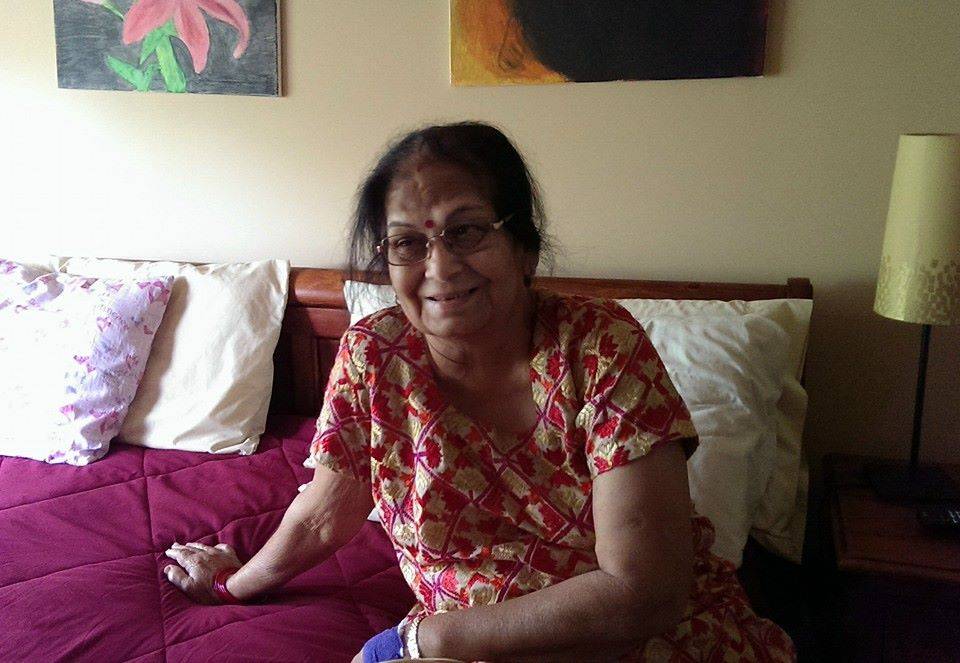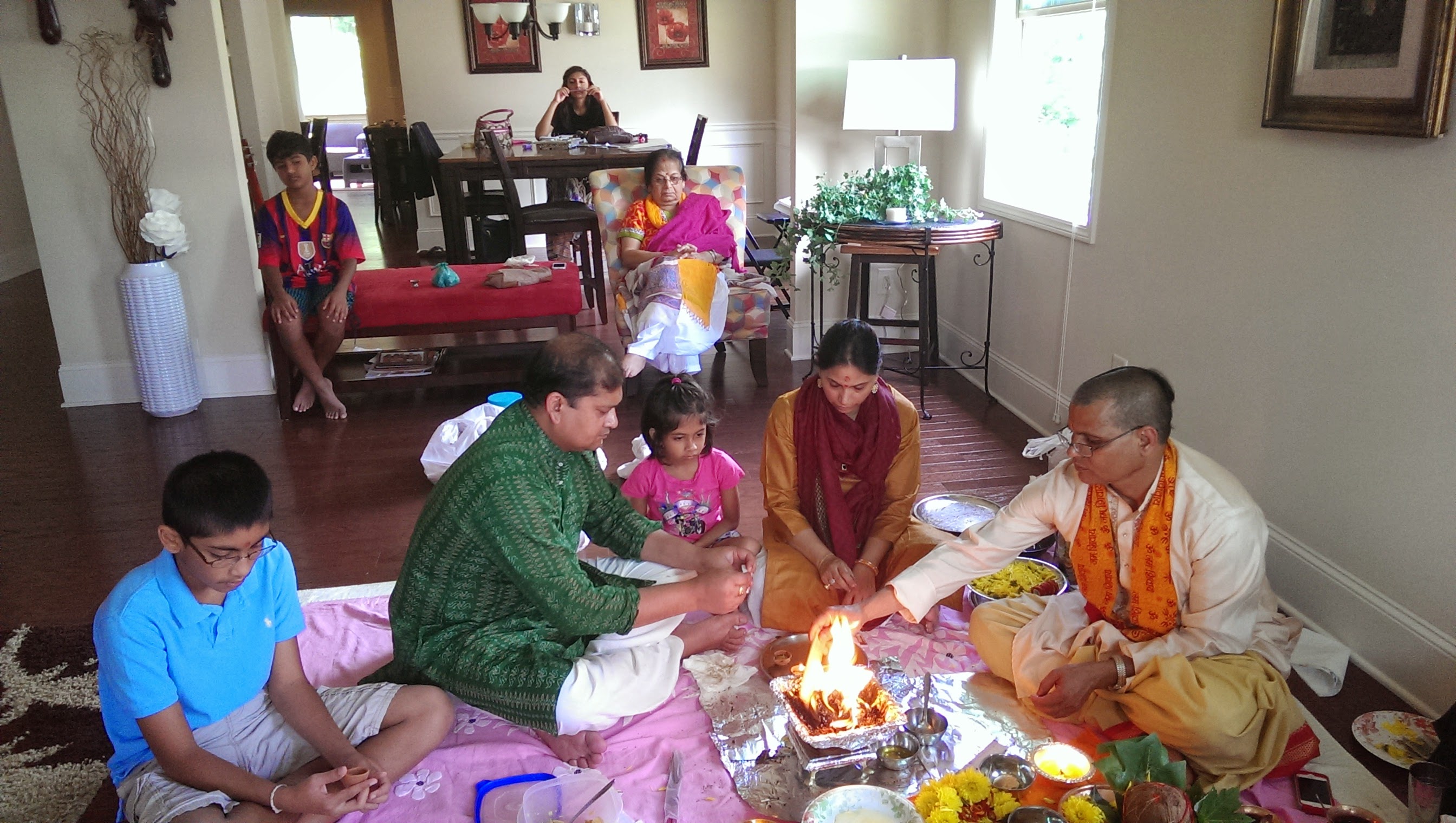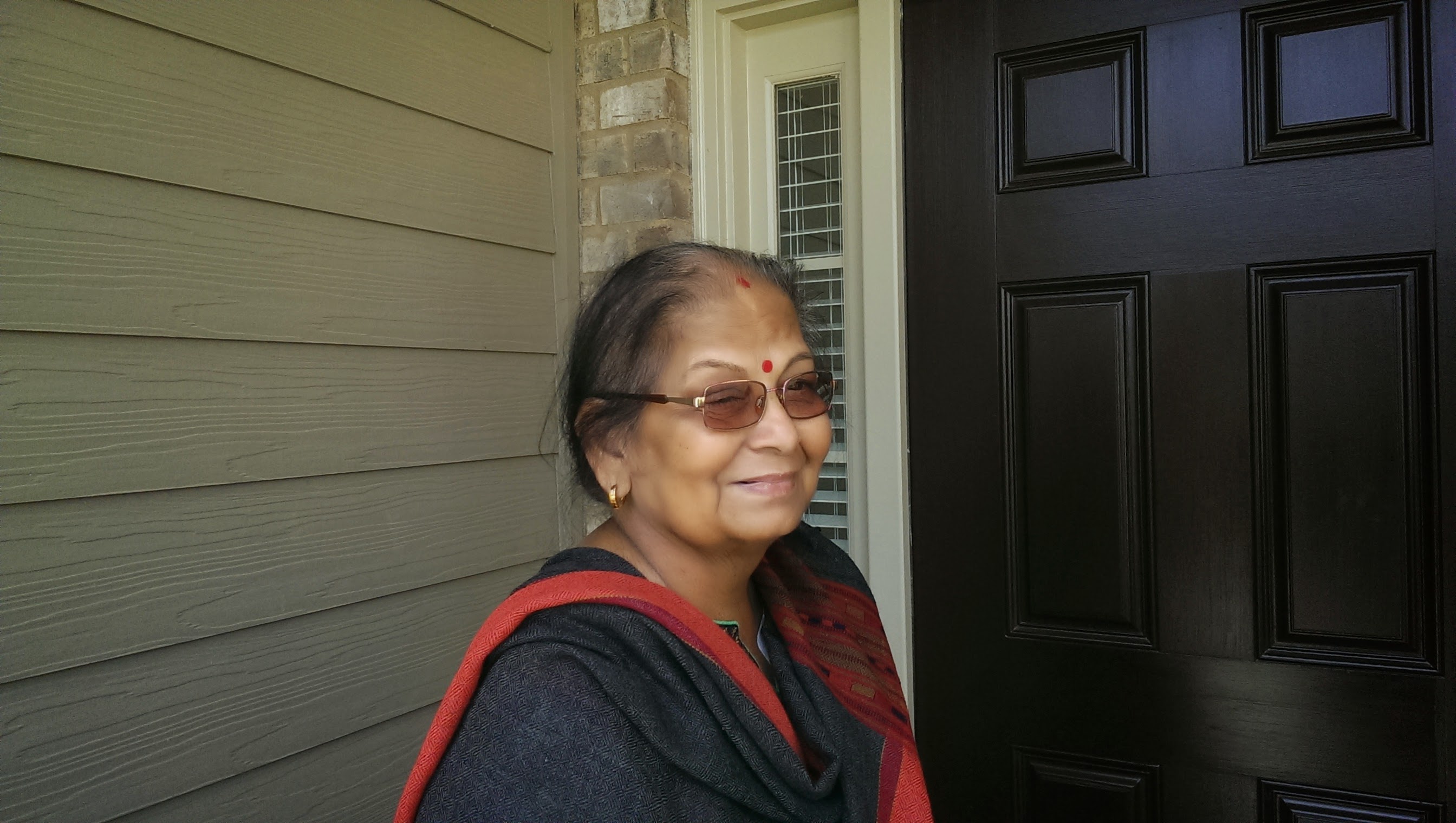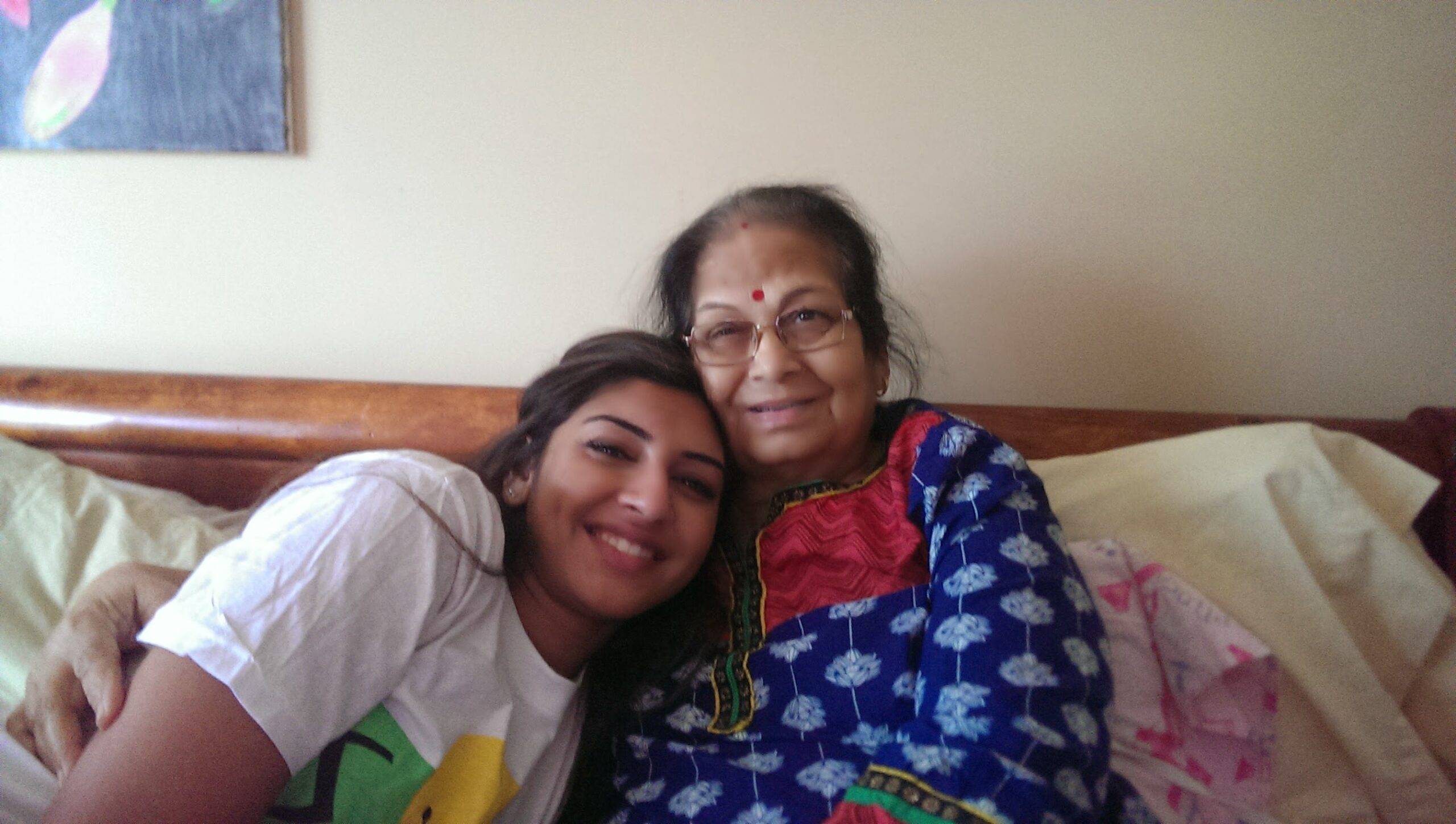Over the next weeks, the two things that we found out for sure about my mother were:
- She had a very high threshold for pain and discomfort
- This was not always a good thing
Her chemotherapy started on 10 July 2014. She wasn’t afraid of hospitals, needles, and medicine, having had a great deal of interaction with all three over her lifetime. We – Ma, Papa, and I – went in on 10 July, the clinic took blood samples to make sure she could go through treatment, and after it was decided she could, we were taken to a room where there were about 30 cancer patients, all in the process of receiving chemotherapy.
Ma’s veins were always difficult to find for all but the most experienced medical technicians. After a few fumbles, an appropriate vein was found, an IV drip was inserted, and she was given some Benadryl to protect her from any potential allergic reactions to the chemo drugs she was about to receive. The Benadryl wended its way in over about 40 minutes, and it had her doze off. Then the chemo drugs – Carboplatin and Taxol – were administered, slowly at first to see if her body had an adverse reaction, and then at normal speed after it became obvious that she could take the drugs without being the worse for wear.
This chemo room was a cheerful place. I know that sounds strange. What could be cheerful about people receiving drugs to try to protect them from an often-fatal disease? The problem with cancer therapy is that chemo and radiation, but especially chemo, are not painless. Having been involved with several cancer patients receiving therapy, I have often heard that the therapy’s effects are more painful than the disease they are supposed to ameliorate. But be that as it may, chemo patients in this room were cheerful because the atmosphere was kept light and upbeat by the clinic staff. Everyone was nice and polite. Every once in a while, you’d hear someone ring a gong. We learned that that was rung by visiting patients whose cancer had gone into remission. When the gong sounded, patients and clinic staff alike cheered and clapped. The emotional impact of hearing and seeing people getting better from treatment that had been administered in the very room we were in cannot be overstated.
About 3 hours later, we were done. Ma was actually hungry on the way back, which was good, because she had more or less lost her appetite over the last few weeks. We stopped at a dosa place near my home, and had a tasty meal before finally going home. Here Ma is, later that day, at home:

Chemo is a sneaky animal. Its premise is that it is harmful to cells that are dividing rapidly, which is true of cancer cells. Depending on the chemo drug type, it damages all such rapidly dividing cells and kills them. The problem is that there are certain completely normal cells in the body that also divide rapidly. These normal cells are, for example, your hair, nail, and stomach lining. Chemo also kills these cells, which is why cancer patients receiving chemo are often bald, have dark nails, and suffer from an upset stomach or nausea.
The first three days after chemo went fine for her. By the fourth day, a slight sense of discomfort had deteriorated into acute issues, with her experiencing a burning sensation under her skin, vomiting, and diarrhea. On the morning of the 15th of July, 2014, she was having to go to the bathroom again and again. Her condition wasn’t being helped by the copious doses of wheatgrass, a supposed anti-cancer herb we had found out about, that she was being given. I was aware of the warning signs of trouble, so I was keeping an eye on her. On one trip to the bathroom, she was in there for quite a while, and I grew worried. “Are you OK?” I called out to her. Without any hesitation, the answer came back: “Yes!”
When she came out that time, I asked her what was wrong, and she was quite firm about everything being alright. We began to have a conversation, during which she addressed me as my younger brother, Dabloo, and I realized with concern that she had no idea of time or place. The trick was to have a longer conversation with her, because her natural instinct was to minimize or hide her problem, the way she had done all her life. The difference this time was that she was dehydrated to the point of not being able to maintain that appearance for any length of time.
As she began to drift off to sleep, the rest of us huddled around to decide what to do. If you have never called an ambulance in your life, you will find it very difficult to call one when someone is sick but not writhing in pain or bleeding. There were some reservations among us as well, but I saw her losing consciousness – in my opinion – and my course of action was not unclear at all. I dialed 911, told the medical emergency operator what was happening, and 5 minutes later, an ambulance with flashing lights, and a fire engine were in front of my house.
The firemen and emergency medical technicians (EMT) came in, asked us some questions, tried to talk to Ma and received garbled answers, and then moved her into the ambulance. Once inside, they inserted an IV drip, took some blood, checked vital signs, and prepared her for the trip to the emergency department of the closest hospital. For us, that is Emory Johns Creek, a very well-appointed, new hospital that was about 3 miles from my house.
The ambulance was at the hospital within minutes, and Ma was taken into an examination room in the emergency section. Within a few minutes, doctors and nurses were at hand. Ma was passing in and out of consciousness by this time. In these situations, the emergency room staff stabilize the patient first, and then run tests as needed. While some of them worked on getting her stable, others tooks blood samples and hooked her up to an IV. Soon, a doctor came by to tell us that she was very dehydrated, so she was going to get a saline drip to rehydrate her. In the meantime, they were going to wait for the blood test reports to come back.
The reports came back. Her body had lost a lot of salts, and her chemical balance was off. She was going to have to receive those salts through her IV drip. She had other health issues, including high blood sugar, high blood pressure, a weak heart, and half of her kidney had been removed along with a stone many years ago. In combination, all of these problems made her current condition rather precarious. Dabloo and I were standing outside her emergency room, when I commented that I wasn’t sure she was going to make it through the night.
She remained in hospital that night. I stayed with her. By the next morning, her condition had improved significantly. She was prescribed stronger anti-diarrhea and anti-vomiting medication, after which she was released from hospital and we came back home.
Over the next 8 weeks, she received six doses of chemo, with a two-week gap between every three doses. We got into a predictable pattern of her being given her drugs, having a full meal on the way back, her feeling tired and sick on the third day after every chemo, and then recovering on the fifth day after chemo. She did have problems with her stomach, but because of better medication, she did not experience the alarming level of dehydration she had gone through before.
We had also been looking for other ways to help her. Wheatgrass had been adopted, in rather voluminous quantities, as I wrote earlier. After her hospitalization, we stopped that. We also found a Chinese monk who was trained at the Shao Lin temple in China – yes, the one that is the stuff of legend – and took Ma to him. We had found out that he had been able to help other cancer patients prolong their lives. He told Ma that there was no magic cure, but that her body had the power to invoke its own immune response to the cancer within her. He helped her by teaching her to breathe correctly, and to meditate.
At the same time, we were on religion overload. Irreligious or atheistic at most times, I had begun trying to find religious protocols to help her. Dabloo had a religious ceremony at his house to ask for her good health and long life.

I got in touch with a distant relative who dabbles in what could best be described as sorcery, if anything. He was in India, but he claimed he could help her by reading mantras to her over the phone. Every morning, I would call him on the phone, and he would read mantras to my mother.
The fact remains that most of us, even if we are not religious or superstitious, will give in easily when it comes to potentially helping a loved one. Magic spells, poojas, prayers – I believe in none of them. It simply does not make sense that you can chant a few words, light a fire, and – voila! – your wish is granted. But I suspended my logic and disbelief because I wanted to do anything to have her live longer. If there was a 0.0001% chance that I was wrong, and that these things did work, I wanted to try. I can’t imagine that there is a son who wouldn’t.
The weeks passed. I became very familiar with her hospital, the diagnostic imaging centers, and her chemo staff. Ma was eating as well as she had in the last couple of years. She liked meditating and doing her breathing exercises. I used to join her sometimes, because according to the Chinese monk, family and friends meditating with her would accentuate the beneficial effect.
During that time, she was very resolute. Her attitude was always very positive. Nothing was going to happen to her, and she would make a return to good health, she kept repeating with total conviction. Only once did I chance upon a brief moment of vulnerability. She and I were talking one afternoon, and she made the observation that she couldn’t make any sense of why the cancer had struck her, of all people, when she had never in her life done anything that could be construed as malicious. I told her that she didn’t deserve what was happening to her, but life was never fair. And that was that.
Eventually, it was time to test her to judge if all the chemo she had received had done any good. Obviously, she was still alive, so that was a major positive. The moment to look at the state of affairs inside was upon us.
Ma went into the same imaging center where her cancer had first been diagnosed on 2 July 2014. The date now was Friday, 29 August. She went through the same process for a PET scan, and about 90 minutes later, we were on our way back.
Our expectation was that we’d hear about the results on 1 September, since it takes about 24-48 hours for a PET scan to be read. There were no calls from the doctor’s office on 1 September, and nothing on the 2nd. We had an appointment with him on the 3rd, so we all went in.
The doctor came in and asked if anyone had contacted us over the weekend with the new results. I told him we hadn’t heard from anyone. Now I had begun to fear the worst, because doctors want bad news to be given as soon as possible, and this doctor was asking us if we had received any news one day after Ma’s scan.
We were completely bowled over when he apologized for keeping us waiting for 5 days, and gave us very welcome news. Ma’s cancer had reacted very positively to the chemo, to the point that it was either much reduced or gone in every tumor. There was a large lump of dead, formerly-cancerous tissue near her neck, in the right collar-bone area, but her cancer had abated!
Ma smiled, and her eyes teared up. She slumped on the examination table where she was sitting. We could see the relief washing over her. How she must have suffered all these weeks, with the fear of death constantly hanging over her! That fear was gone, at least for now. Here she is, that evening:

The next few days were a whirl of relief, happiness, and – for me, at least – trepidation. I knew Stage 4 cancer was incurable. I knew what her chances were. Now I had to wait for the killer to reappear and strike, or hope that Ma was one of the very small number of people who survived her type and stage of cancer.
But you know what? She was fine, for now, and I don’t believe she was at all afraid. That was good, wouldn’t you say?
